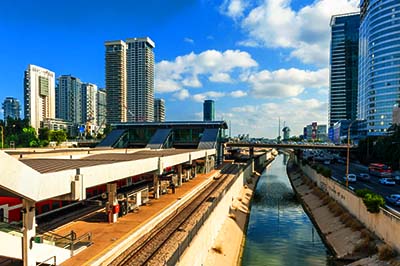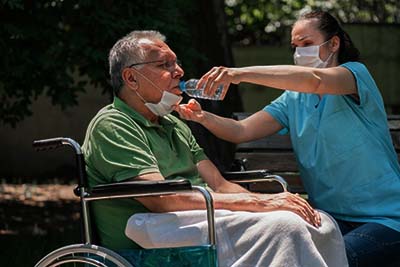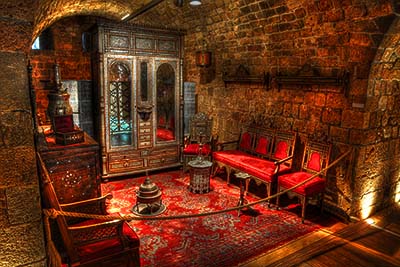
The global surge in medical tourism has impacted heavily on Israel’s healthcare demand. Despite being far from western nations, Israel still receives thousands of medical tourists each year. That’s mostly because of their efficient technology and standard of care.
Israel ranks 8th in the medical tourism index of 2021. Procedures such as bone marrow transplant, orthopedic, in-vitro fertilization, and heart surgeries are the most popular amongst tourists. According to the Israel ministry of tourism, approx. 30,000 medical tourists visits the country annually. And that number is expected to rise in the upcoming years. Both private and public hospitals offer medical tourism packages. However, private hospitals’ services are usually of a higher standard and are a more preferred choice for foreign patients. This article is aimed at giving you a general overview of what medical tourism in Israel has to offer. We’ve tried to compile all the important parts of traveling to Israel into a single article.
Table of Contents
- Why Choose Israel for Medical Tourism?
- Healthcare System in Israel
- Traveling to Israel for Medical Tourism
- Where to Stay in Israel?
- Things to Know Before You Travel – Frequently Asked Questions
- Things to do in Israel
- Final Verdict
Why Choose Israel for Medical Tourism?


Most people seek medical treatment in Israel to avoid the risk of complications after surgery. It is a major issue with many low-cost medical tourism countries. The cost of treatment here isn’t the cheapest but is significantly less expensive than in the US.
The quality of treatment is equal to that of the US and other western European nations. There are at least 20 JCI accredited hospitals and clinics in the country. You can even ask for a free consultation from top hospitals such as Sheba Medical Center.
Western citizens will find it easy to live in this country. The living standard is equivalent of 1st world nations, and the climate here is adequate for most people. Moreover, the relationship between Israel and the US has always been very close. So, receiving visas and medical facilities tends to be easier for American citizens.
Is Israel Safe for Medical Tourist?
Israel is safe for tourists. The country has strong public security, and the crime rates are low. However, it is advised not to go near Gaza and other conflicted zones near the southern borders. Small wars and firing are frequent scenarios.
The majority of the country is safe to visit, except for those few conflicted areas. The main tourist areas are Tel Aviv, Jerusalem, Haifa, and the dead sea, etc. Also, security situations can alter from time to time in certain Palestinian territories. Conflict outside those marked zones is not noticeable in the rest of the country. Still, we always recommend that you stay in touristy places and take extra precautions when visiting any unfamiliar sites.
Is the Healthcare Quality in Israel the Same as Back Home?
The quality is mostly the same, but on specific procedures, healthcare in Israel outperforms the US medical system. For example, Israeli hospitals deliver excellent output in IVF, bone marrow transplants, heart surgeries, and rehabilitation treatments.
Israeli and US healthcare research are closely tied together. Both countries tend to adapt early to new medical technologies and use them extensively to enhance quality further. Frequently, the US and Israel collaborate to develop their medical technologies. For example, the Israel Innovation Authority and Binational Industrial Research & Development Foundation (BIRD) have financed multiple Israeli medical companies to develop and test their products in the US. Thomas Jefferson hospital and Mayo Clinic are two of those companies. (Source)
Healthcare System in Israel


The government mandates healthcare insurance for all citizens. Israel’s National Health Insurance (NHI) offers one of four free health packages that must cover any citizen who applies for it.
People excluded from this service are soldiers (the army provides their health care) and Inmates (receives health care from Israel Prison Service). Foreign workers are also excluded and need to apply for private insurance. Temporary residents and tourists will also not get the government’s free insurance service.
Choosing Medical Tourism Agents in Israel Treatments
Israel has strict policies regarding medical tourism companies. Any company operating as medical tourism agent needs to be registered by the ministry of health. They also need to comply with the medical tourism law to offer service. This law is crucial as it ensures that fake or unreliable companies don’t spoil the tourism industry.
However, we would highly recommend not to take services from new tourism agents. According to the government’s law, anyone who applied for registration can present themselves as medical tourism agents. The registration process can last for three months before getting full certification. So, look for agents older than three months. More preferably, contact someone who has at least a few years of experience.
Common Treatments Done by Medical Tourists in Israel
Israel’s average life expectancy on average is 81 years. That shows how excellent and well-developed their medical infrastructure is. In general, most renowned hospital in the country will have cutting-edge equipment. In fact, Israel is one of those few countries to implement modern medical methods the earliest.
Medical expenses aren’t the cheapest, and proximity to the west is also not that close. As a result, patients ideally come here for complex surgeries that aren’t feasible elsewhere. Treatments for oncology, neurology, and cardiac are in the highest demand.
According to Booking Health, 80% of patients come for medical tourism in Israel solely for cancer treatments. Using photodynamic therapy, doctors can cure prostate cancer without surgery. Additionally, using Gamma Knife and CyberKnife, doctors can eliminate small neoplasms in the brain. In a more traditional approach, it would have required incision and long, painful rehabilitation.
Here’s a list of some common focus areas for medical tourism in Israel:
- Oncology
- Orthopedic
- cardiology
- Neurology
- Gastroenterology
- Pediatrics
- Plastic surgery
- Cosmetic surgery
- Vascular surgery
- Bone marrow transplant
Cost of Medical Treatment in Israel
Depending on the procedure and complexity, the prices will vary. However, here’s a quick rundown of what you can expect to pay in Israeli hospitals. This will be a table for medical tourism costs comparisons between the US and Israel.
| Procedure | US Hospitals | Israel Hospitals | Est. Savings |
| Heart bypass | $120,000 | $20,000 | 73% |
| IVF Treatments | $16,000 | $5,000 | 68% |
| Bone Marrow Transplant | $240,000 | $100,000 | 53% |
| Hip Replacement | $41,000 | $35,000 | 6% |
| Knee Replacement | $38,000 | $20,000 | 25% |
| Cataract Surgery | $5,000 | $3,500 | 30% |
| Face Lift | $7,500 | $6,500 | 13% |
| Breast Augmentation | $5,000 | $3,500 | 30% |
| Complete Liposuction | $4,000 | $2,000 | 50% |
| Botox | $500 | $350 | 30% |
| Nose Surgery | $5,500 | $4,000 | 23% |
| Dental Implants | $3,000 | $1,000 | 62% |
Popular Hospitals for Medical Treatments
Looking for high-quality hospitals in Israel is a breeze. You don’t need to search for JCI accredited hospitals specifically; most are up to the standard. Still, many Americans tend to find accredited hospitals easy to trust, so there are options for them as well.
Sheba Medical Center
When searching for medical tourism in Israel, Sheba hospital will be a pronounced result you will stumble on. They rank 9th on Newsweek’s 2021 world’s best hospital chart. Sheba is affiliated with Tel Aviv University and is a forerunner for biotechnological innovations.
Sheba Medical Center provides dedicated facilities to medical tourists. Such as consultation before traveling, personal coordinator, and travel & logistic support. They will provide visa obtaining documentation, accommodations, transport facilities, and rehabilitation center services. Prices are transparent, and you will get to choose the doctor you prefer from their list.
Sourasky Medical Center
Similar to Sheba, Sourasky Medical Center also caters to medical tourists. The common treatments they feature for medical tourists are radiotherapy, cancer treatment, neurosurgery, cardiothoracic surgery, and bone marrow transplant. Furthermore, Sourasky is one of the very few hospitals in the world that are FDA approved to perform immunotherapy compatibility tests.
Sourasky Medical Center manages over 12,000 deliveries, 220,000 ER visits, and over 36,000 surgical procedures every year. They have a good reputation for handling medical tourism patients. And to make their recognition more feasible, Sourasky has also acquired JCI accreditation. The hospital is located in Tel-Aviv and is around 34 minutes apart from the airport.
Rambam Medical Center
With approx. 1000 hospital beds, Rambam Medical Center is the 5th largest medical center in Israel. They serve 2 million Northern Israeli residents and are a referral center for 12 district hospitals.
Rambam Medical Center is at the forefront of medical research and development. This hospital has affiliations with numerous institutions such as Technion-Israel Institute of Technology and the University of Haifa. Rambam also offers all sorts of arrangements for medical tourists. Starting from the logistic arrangement, hotel accommodations, travel visas, and personal coordinator – they will manage everything.
Traveling to Israel for Medical Tourism
The time and cost will drastically vary between airlines, distance, and the country you are traveling from. Hence, consider our data as an estimate on the travel expenses for medical tourism in Israel.
Distances and Flying Times
- New York to Tel Aviv: 5,660miles, 10hr 15min
- California to Jerusalem: 7,420miles, 15hr, 28min
- London to Jerusalem: 3610 km, 4hr 45min
- Toronto to Haifa: 5727miles, 10hr 25min
Airfares
- New York to Tel Aviv: $800
- London to Tel Aviv: $425
- Washington to Jerusalem: $975
When is the Best Time to Travel for Medical Procedure?


Israel’s tourism sector stays open all year round. But your experience will vary depending on when you visit the country. The autumn and spring seasons will probably be the best time to visit. The temperature will be mild during those periods.
Tel Aviv and the southern part tend to be warmer during the Summer. And the winter season is probably the best to avoid for medical tourists. Extreme low temperatures, heavy rainfall is not unnatural. The northern part of Israel will likely be the coldest, and coastal regions may experience heavy rain. The city of Eilat stays fairly pleasant during winter. As a medical tourist, you should book accommodations and hospital visits a few months in advance during peak tourist months.
Where to Stay in Israel?
There are hundreds of hotels scattered across the country. Most of the mainstream cities are very well-developed and offer all the modern luxuries westerners might seek. Religious travelers might find Jerusalem a perfect choice, while beach lovers can enjoy the Mediterranean sea in Tel Aviv. It all depends on what you want to combine with your medical travel. Here’s a list of hotels that you might be interested in.
Jerusalem


Jerusalem is one of the oldest cities in the world. It has extreme religious significance for Muslims, Christians, and Jews. Additionally, you can witness ancient ruins present in Jerusalem’s Old city that dates back to the 16th century from the Ottoman rule. According to UNESCO’s data, there are 220 historical monuments in the city (Source). It is a must-visit place for any history enthusiast.
Some notable hotels in Jerusalem:
- Orient Jerusalem – 3 Emek Refa’im Street, Jerusalem, 9310402
- Stay Inn Hotel Jerusalem – 21 King George St., Jerusalem, 6380604
- Hashimi Hotel – Khan El Zeit St. No 73 Old City-Jerusalem, Jerusalem, 09754
- Herbert Samuel Hotel Jerusalem – Shamai 25 St, Jerusalem, 12345
Tel Aviv
Tel Aviv is the economic and technological center of the country. Although this city is not the capital, it is home to many foreign embassies. If you are considering staying here, please be warned it is not the cheapest place. Tel Aviv is the 20th most expensive city in the world. However, it is also a party capital and has lively nightlife and beautiful beaches. So if you have the money, Tel Aviv will be a better choice. Living here is still considerably cheaper than in the US.
Some notable hotels in Tel Aviv:
- Lighthouse Tel Aviv – Ben Yehuda 1, Tel Aviv, 63801, Israel
- Isrotel Tower Hotel – 78 Hayarkon Street, Tel Aviv, 63432, Israel
- Hotel Rothschild 22 – Rothschild 22, Tel Aviv, 6688218, Israel
- Herods Tel Aviv – 155 Hayarkon Street, Tel Aviv, 63453, Israel
Haifa
Haifa is the third-largest city in Israel, with a population exceeding over 285,300. Similar to Jerusalem, Haifa also has historical significance. It is also crucial for the recently established religion Baháʼí Faith. This city has a mixture of both modern and historical attractions. Haifa has caves, monasteries, beaches, ancient sites, and modern attractions such as cable cars, museums, etc. For an all-in-one tour, Haifa will be an appropriate choice.
Some notable hotels in Haifa:
- Satori Hotel – 61 Herzel Street, Haifa, 32100, Israel
- Eden Hotel – 8 Shmaryahu Levin Street, Haifa, 33101, Israel
- Leonardo Plaza Haifa – 10 David Elazar Street, Haifa, 35081, Israel
- The Colony Hotel – 28 Ben Gurion Boulevard, Haifa, 35023, Israel
Things to Know Before You Travel – Frequently Asked Questions
Traveling without preparation can throw you into unavoidable pitfalls. Each country has its own rules that you need to be aware of. To make things simpler, we have listed some obvious questions most people ask before planning their medical travel.
Do I need to know Hebrew?
You don’t need to speak Hebrew. The vast majority of people living in the country speak English. Besides, most hospitals will usually have translators for aiding foreign tourists.
What about malpractice and liability laws in Israel?
Israel has a strong focus on malpractice laws regarding medical treatment. If a practitioner purposefully neglected treatment or engages in unethical activities, the patient can file a lawsuit. Several law firms in Israel offer patients assistance with malpractice issues. Having insurance will also help in case you fall into such conditions.
What payment methods are accepted in Israel?
Hospitals should accept cheques and credit cards. However, that may not be the case with all hospitals. We recommend you consult with your hospital for details regarding the payments.
Do I need to get money converted before visiting Israel?
All locations may not accept foreign currencies. If you intend to go sightseeing, then it will be ideal for you to convert some cash beforehand. Also, avoid using exchange desks at the hotels or airports. You will get a bad deal with the exchanged money. And importantly, let your bank know before traveling. Suspicious transactions in foreign currency may block your account. So letting them know beforehand will save you from a serious hassle.
How to access emergency services?
Dial 101 for the ambulance and medical services. This number is valid in Israel and Palestinian authorities. Additionally, you may want to get your embassy contact details as well.
Do I need insurance coverage?
As a non-Israeli citizen, you can choose private insurance from four organizations. They are Clalit, Maccabi, Leumit, and Meuhedet. It is important to note that tourists with healthcare insurance may need to pay out of pocket for medical procedures. Later you will need to submit the receipt for reimbursement.
Do I need car insurance in Israel?
Having car insurance is a legal requirement. You will otherwise, have to pay a fine without proper car insurance. There are three types of car insurance; these are compulsory, comprehensive, and 3rd party insurance.
What about wheelchair access in Israel?
Wheelchair accessibility is becoming increasingly popular throughout Israeli tourism destinations. Wheelchair compatible transports and assistance are also relatively easy to find. As long as you are visiting Israel’s mainstream cities, wheelchair access shouldn’t be an issue.
Things to do in Israel


Although Israel is modern, developed, and has good relations with western nations, its environmental resemblance is slightly off course. The fact that Israel is in Asia, and has a strong influence from the Islamic and Jewish cultures, and has a centuries-old history – makes this place an unusually appealing attraction for most tourists.
Israel offers the best of everything for people of all demographics. If this is your first medical visit to the country, then consider our recommendation. These should give you ample experience on what medical tourism in Israel has to offer.
Beautiful Beaches of Israel
When it comes to beaches, there’s plenty to choose from. Israel’s beaches spans across the Mediterranean and the Red Sea. Each has its own flavor and attraction influenced by the locals.


Beaches in Tel Aviv – Urban beaches of Tel Aviv remain busy with youngsters and lively people, while the rural ones are more calm and suitable for recovery. Frishman Beach offers easy access to families and friends. Activities such as volleyball courts, fitness centers, etc., present there attracts locals and tourists alike. The beach also hosts lifeguard and first-aid facilities on site. The Hilton Beach always remains active with surfers, suntans, and swimmers. This beach has three divisions that draw tourists with different interests.
Go south of Eilat – Here, you will get to enjoy a more warm beachy vibe of the Red Sea. At the Dolphin Reef, you will get to swim with dolphins and also see other magnificent creatures nearby. The dolphins there are not kept in captivity. They roam free in the open sea and are extremely friendly with humans.
The Dead Sea is the perfect destination for any medical tourist. Its popularity is ample enough to have at least 15 hotels and resorts stretching 6Km around its shore. The water contains chemical properties that pose positive health effects. Which made this is a popular center for climatotherapy, heliotherapy, and thalassotherapy. Visiting the dead sea is a must for anyone seeking medical tourism in Israel.
Visit Historical Sites


Israel is the goldmine for religious historian enthusiasts. The old city of Jerusalem is of significant importance for Jewish, Islamic, and Christian religions. You will get to visit the Western Wall, which is the last remaining wall of the Jewish Temple. Above that lies the Dome of the Rock, which is important for Muslims. Just a short distance apart lies the Church of the Holy Sepulchre. Many people believe this is the place where Jesus was crucified. Jerusalem also hosts the iconic Al-Aqsa mosque that is a must-visit place as well. All of these sites are fully open to tourists; however, some will have restrictions on when you can visit.
Visit the Rothschild Boulevard in Tel Aviv. It is at least a 100 year old street, and poses important significance to the country. More importantly, the independence of Israel was signed at Independence Hall on Rothschild Boulevard.
The Petra tours of Israel are also a major hit amongst tourists. The ancient ruin discovered there were built around 2000 years ago. Moreover, private agencies operating near the region offers 1-day to 4-day tour packages for Petra tours.
Museums are More Interesting than You Think


Israel offers a comprehensive list of museums ranging from archeological, biographical, biblical history, and religious significance.
Yad Vashem is Israel’s largest Holocaust memorial spanning over 4,200 square meters of land. The museum portrays the experiences of Jewish people who were victims of mass murder during Nazi rule. You will get to see original artifacts, survivor testimonials, and personal belongings from that era.
Steinhardt Museum of Natural History will acquaint you with scientific discovery, development, biodiversity, human impact on the environment, treasures, and much more. Basically, you will get a roundup of the achievements and possessions of what Israel is proud of. The Israel Museum in Jerusalem is a marvelous example of preserved history. It is Israel’s largest cultural institution and contains the most comprehensive findings of ancient archeology in the world. Additionally, there are around 500,000 objects present in the museum. You will also get to see the oldest biblical manuscripts dating back to the early medieval era.
Final Verdict
We have already mentioned before that Israel is not the place for the cheap healthcare. If you need state-of-the-art medical treatment with a high patient safety level, then medical tourism in Israel is for you. It will surely cost far less than what you would pay in the US. Compared to many Asian countries, Israel is safer and more manageable. From doctor appointments to planning medical vacations, everything is usually very well sorted out. However, it’s not entirely hassle-free. Overwhelming car insurance policies, money exchange, and a few inconveniences are present there. If Israel is not suiting your needs, maybe you will find something from our list of Top 11 Best Countries for Medical Tourism.
Pros
- Hospitals use highly sophisticated and up-to-date medical equipment
- Israel has some of the best medical practitioners in the world
- Malpractice laws are stricter than in many other destinations
- Hospitals are trained to cater to English speaking staffs
Cons
- Prices are higher than in Asian countries
- Conflicts near the Israeli border are common
- Public hospitals are usually not as higher standard as private counterparts
- Getting car insurance and money exchange can be a bit difficult to understand
You may consider other countries for medical tourism, such as Mexico, Costa Rica, Panama etc., and more. We have details guide as Popular Destinations for Medical Tourism.
